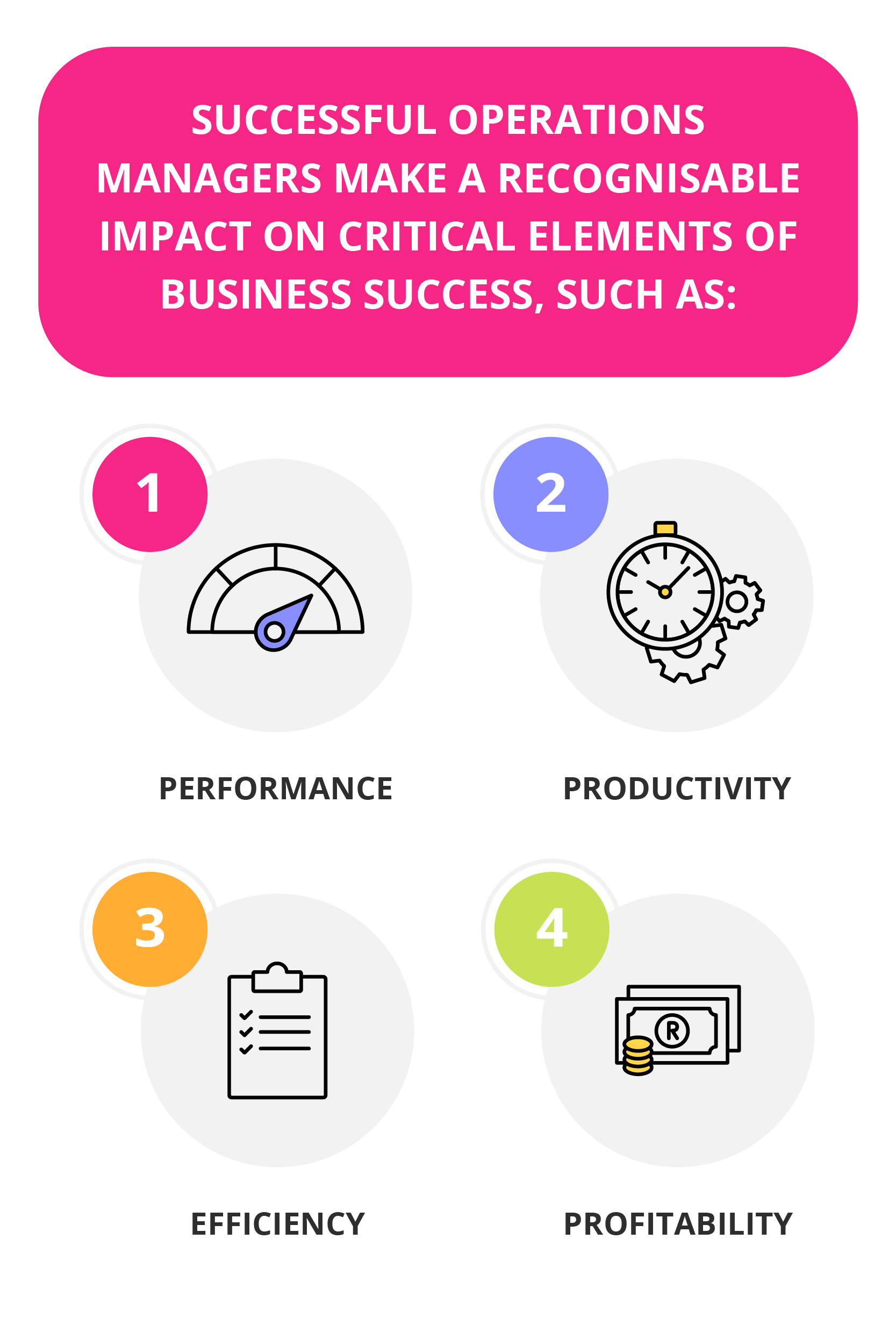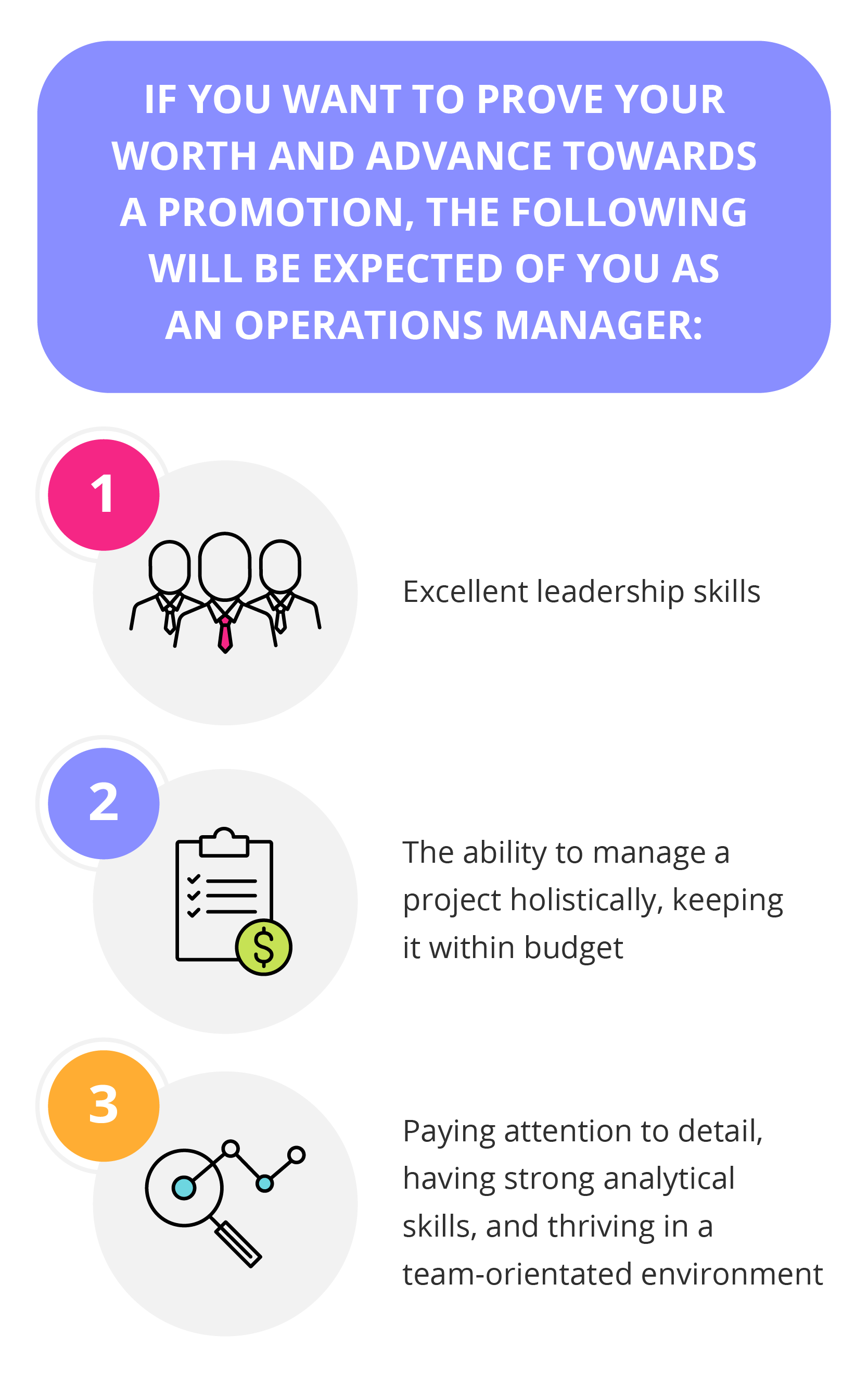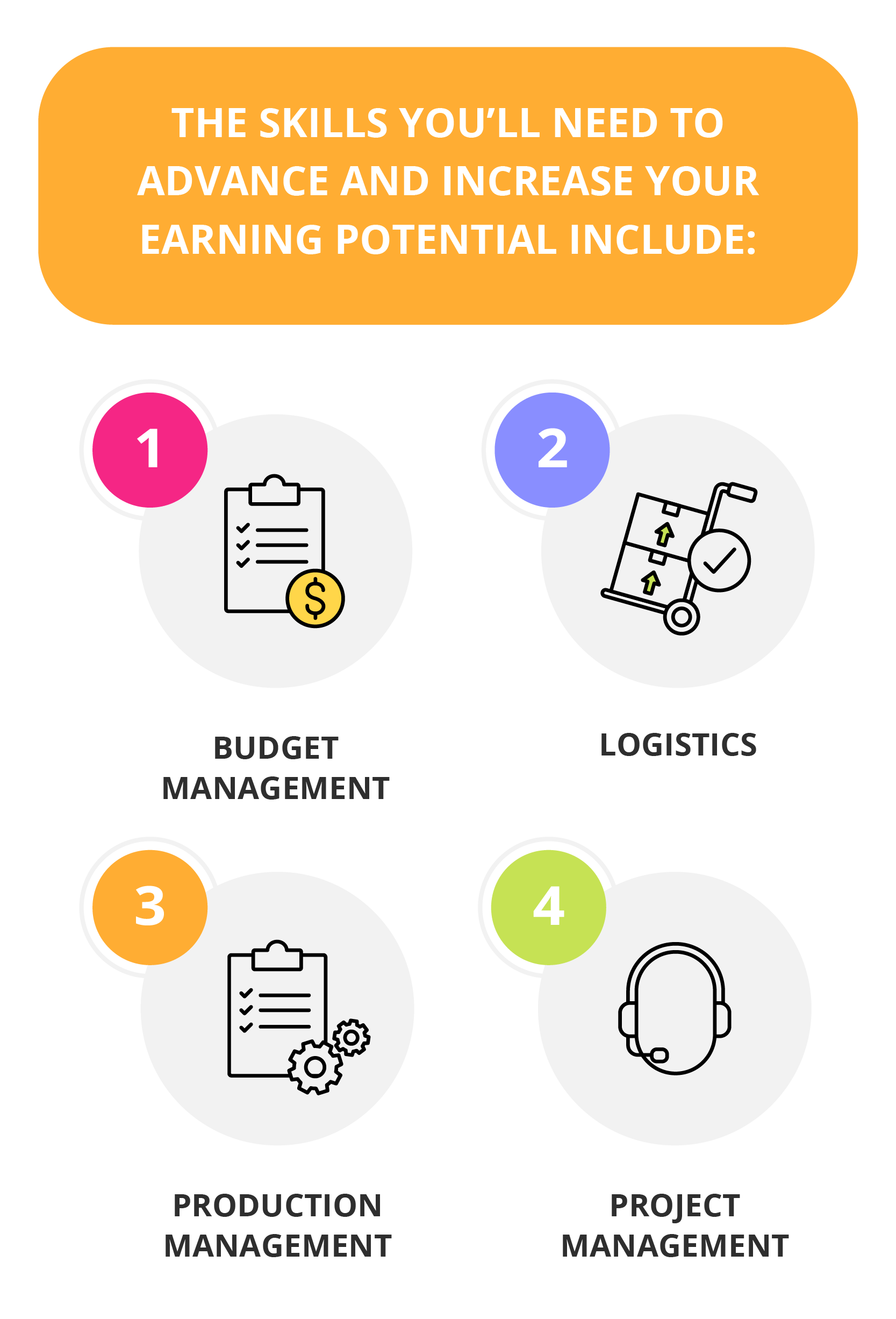How to Become an Operations Manager
To become an operations manager, you’ll need to gain on-the-job experience in business and administration-related fields, supplemented with a bachelor’s degree or similar in a relevant area of study. As a skilful jack of all trades, operations managers need to have holistic business skills, often obtained through an operations management course, as well as knowledge of multiple departments, in various functions, ensuring that each part seamlessly works together to produce a productive and profitable machine.
A recent PwC survey of 1,300 global CEOs reveals that 77 per cent of their main focus in driving revenue growth is to create operational efficiencies.1 As industries change and workforces become more complex, ensuring smooth processes is pivotal to business survival. This is where an operational manager, whose role is plan, direct, and coordinate the operations of organisations, comes in.
Accelerate your career
In today’s evolving business landscape, there’s a need for leaders with the core management skills and knowledge to analyse and make complex business decisions across all facets of an organisation. Whether technical or business-centred, online operations management courses ensure your skill set is kept up-to-date throughout your operations management career.


I have never had a job more stressful, crazy, ludicrous and exhilarating as operations management. When you’re in it, you’re in it, you’re driving the train, so to speak. Not only are you a manager, you’re a repairman, an IT guy, a delivery person, a taxi driver, and pretty much anything else you can imagine. To say the least, you wear a lot of hats. But with many hats comes many rewards.
Megan Knapp, UNION PACIFIC operations management trainee
Responsibilities for operations management
An operations manager carries a varied portfolio of responsibilities that differ depending on the company and the product or service they offer. Three areas where operations managers make an impact include:
Production management
- Identifying operational inputs, processes, outputs and feedback by using transformation to improve the operational systems, processes, and policies in support of an organisation’s mission
- Ensuring quality operations management in an organisation by finding the perfect processes for employees to get the work done
Financial management
- Overseeing overall financial management, planning, systems and controls, and organising fiscal documents with the chief operations officer (COO)
- Managing the impact that working capital, budgeting, financial statements and cost cutting has on the cash flow of an organisation
Resource management
- Managing and increasing effectiveness and efficiency of the HR, IT and finance departments through improvements to each function, as well as coordination and communication between support and business functions
- Creating an empowering work environment to maximise and align workforce efforts and overall team productivity
The expected salary
Using employment projection and salary data from the Bureau of Labor Statistics, Business Insider lists business operations specialists among the 30 high-paying jobs that are poised to enjoy healthy employment growth over the next decade.2 Operations management jobs are on the rise and you can fill the gap.
Most operations professionals people move on to higher level jobs if they have more than 20 years’ experience in the field.

Your career path – what’s next?
Using employment projection and salary data from the Bureau of Labor Statistics, Business Insider lists business operations specialists among the 30 high-paying jobs that are poised to enjoy healthy employment growth over the next decade.3 Operations management jobs are on the rise and you can fill the gap.
One of the perks of the operations management field is that there are jobs available in almost every industry. Whether it be retail or education, government institutions or manufacturing and service organisations, operations management is a sought-after skill set applicable to every organisation.
As more businesses expand globally, the demand for a strong operations management skill set will be needed in the following roles:
- Facilities coordinator
- Purchasing manager
- Logistics analyst
- Process engineer
- Transportation manager
- Customer service manager
- Operations analyst
- COO
In short, the workplace of the future means that the operations management profession is going to rise in demand in the fields of business. If you’re aspiring to a career in this industry, you’ll need to prove yourself by being a fast learner, digitally savvy, adaptable to the changing rules of the workplace, and highly motivated. You’ll also have to formalise your commitment to improving your skill set by investigating in operations management online courses in order to progress up the ladder.
After gaining experience as an operations manager, you’ll be able to advance in your career, eventually moving into the sought-after position of a COO, one of the highest-ranking executives in a company, who works alongside and reports to the chief executive officer (CEO).
Out of 400 managers questioned in a recent survey, 66 per cent ranked leadership as the most important skill to develop in their employees.4 Managing operations is a leadership role, and some people take to this part of the job more naturally than others. Over and above managing daily operations, you’ll need to communicate effectively in high-stress situations, and motivate teams towards achieving a shared goal. For businesses that want to survive, thrive, and excel, operational leadership is crucial.
- 1 PWC (Jan, 2019). ‘Global PWC study shows CEO confidence in growth dropped dramatically’. Retrieved from PWC.
- 2 Kiersz, A. (Mar, 2019). ‘The 30 best high-paying jobs of the future’. Retrieved from Business Insider.
- 3 Kiersz, A. (Mar, 2019). ‘The 30 best high-paying jobs of the future’. Retrieved from Business Insider.
- 4 (2018). ‘Workplace learning report 2018’. Retrieved from LinkedIn Learning.
